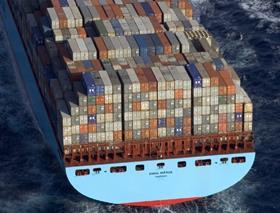
Danish shipping group Maersk Line has made the 1000th port call since the introduction of its environmental initiative to switch to cleaner fuel across North American west coast ports.
The initiative, which has involved 111 ships since its inception in 2006, has reduced the group's vessel-related air emissions by over 2,400 tonnes when calling at the ports of Los Angeles and Oakland in California, Tacoma in Washington and Vancouver in Canada.
As part of the process to reduce emissions, Maersk Line switches from 'bunker' fuels with high sulphur content to low-sulphur distillate fuel on the main and auxiliary engines of its vessels while underway in port areas.
'In 2006, Maersk Line took an unprecedented step to reduce vessel air emissions by voluntarily converting to lower polluting diesel fuel in our main and auxiliary engines in these ports,' said Dr Lee Kindberg, director of the environment for North America at Maersk. 'Maersk Line is convinced that mobile ship emission control solutions like fuel switches and catalytic converters provide great promise in effectively reducing emissions from ships in port areas.'
The scheme has cost Maerk Line over US$18m to date, and has yielded an 86 per cent reduction in particulate matter, a 95 per cent reduction in sulphur oxides, and a 12 per cent reduction in nitrogen oxides.
'Congratulations to Maersk Line for completing the 1000th vessel call to west coast ports using cleaner fuels,' said California State Senator Alan Lowenthal in a statement. 'By voluntarily switching to low-sulphur distillate fuel, you have become the environmental leader in the shipping industry – California is a healthier state due to your commitment to cleaner air quality.'






No comments yet